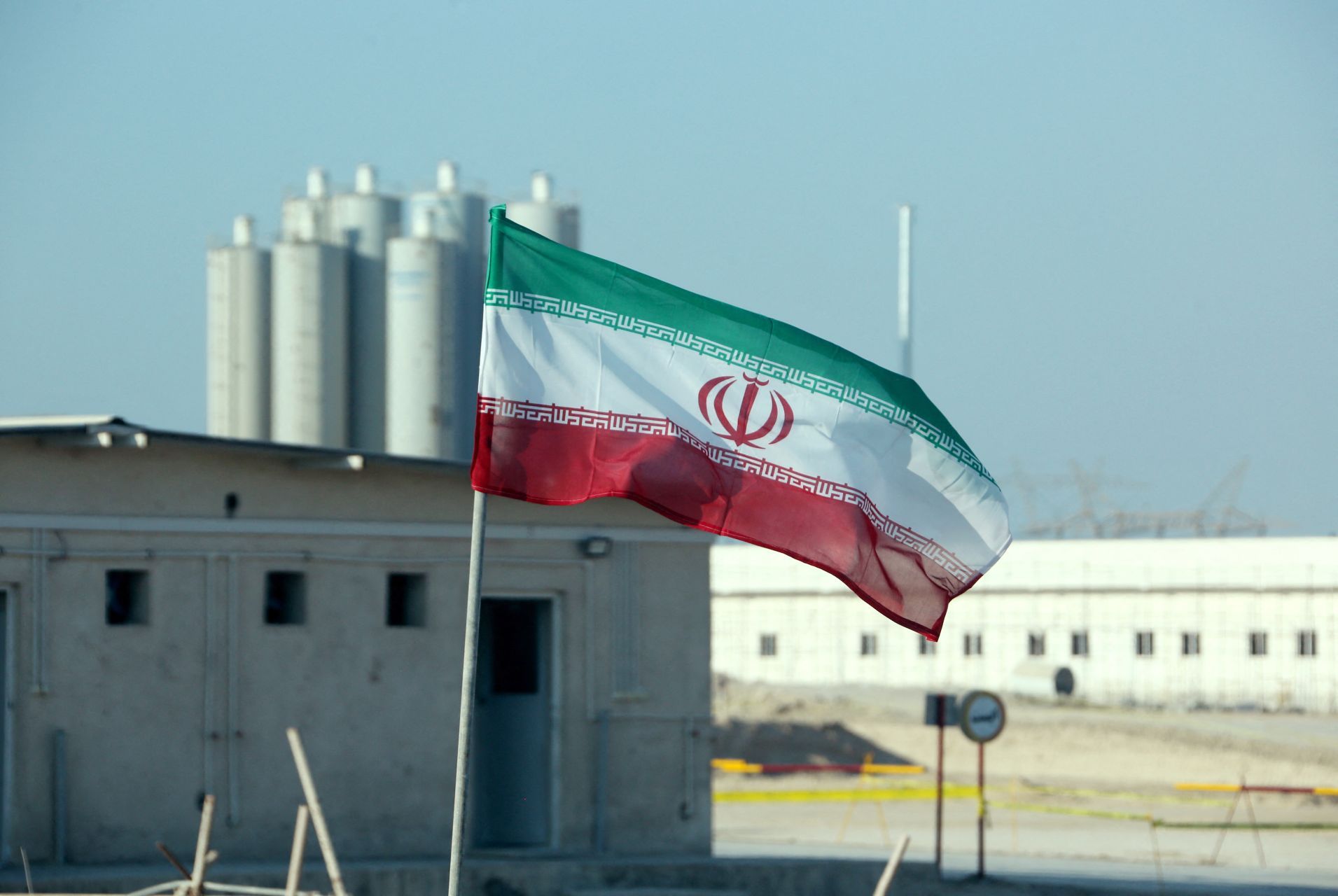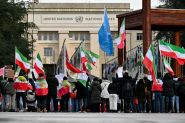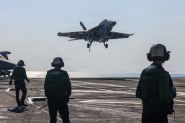- Home
- Middle East
- Iran Says Return of IAEA Inspectors Not Full Resumption of Cooperation

Facing an end-of-August deadline to avoid sweeping UN sanctions, Iran will resume nuclear talks next week with Britain, France, and Germany amid rising tensions over its suspended cooperation with the IAEA following the war with Israel. ©Atta Kenare / AFP
Iran said Wednesday that the return of UN nuclear inspectors did not represent a full resumption of cooperation, which was suspended in the aftermath of June attacks by Israel and the United States.
Inspectors from the International Atomic Energy Agency began work at the key nuclear site of Bushehr in southwestern Iran, the nuclear watchdog's chief Rafael Grossi said, the first team to enter the country since Tehran formally suspended cooperation with the UN agency last month.
"No final text has yet been approved on the new cooperation framework with the IAEA and views are being exchanged," Foreign Minister Abbas Araghchi said, quoted by state television.
The agency's inspectors left Iran after Israel launched its unprecedented attack on June 13, striking nuclear and military facilities as well as residential areas and killing more than 1,000 people.
Washington later joined in with strikes on nuclear facilities at Fordo, Isfahan and Natanz.
Iran retaliated with missile and drone attacks that killed dozens in Israel. A ceasefire between Iran and Israel has been in place since June 24.
Iran subsequently suspended its cooperation with the IAEA, citing the agency's failure to condemn the Israeli and US attacks.
But on Wednesday Grossi said the inspectors were "there now," adding, "Today they are inspecting Bushehr."
Under the law suspending cooperation, inspectors may access Iranian nuclear sites only with the approval of the country's top security body, the Supreme National Security Council.
Tehran has said repeatedly that future cooperation with the agency will take "a new form."
The spokesman for Iran's Atomic Energy Organization, Behrouz Kamalvandi, said the IAEA inspectors would oversee the replacement of fuel at the Bushehr nuclear power plant.
He made no mention of whether inspectors would be allowed access to other sites, including Fordo and Natanz, which were hit during the war.
'Litmus Test'
Grossi, on a visit to Washington, said discussions about inspecting other sites were underway with no immediate agreement.
"We are continuing the conversation so that we can go to all places, including the facilities that have been impacted," he said.
He said that Iran cannot restrict inspectors only to "non-attacked facilities."
"There is no such thing as a la carte inspection work."
The return of inspectors came after Iranian diplomats held talks with counterparts from Britain, France and Germany in Geneva on Tuesday.
Their second round of talks since the Israeli attacks included discussion of European threats to trigger the reimposition of UN sanctions against Iran before they are permanently lifted in mid-October.
The window for triggering the so-called "snapback mechanism" of a moribund 2015 nuclear deal between Iran and major powers closes on October 18.
During their previous meeting with Iran in July, the three European powers suggested extending the snapback deadline if Tehran resumed negotiations with the United States and cooperation with the IAEA, the Financial Times reported.
Iran later dismissed the Europeans' right to extend the deadline and said it was working with its allies China and Russia to prevent the reimposition of sanctions.
Iran's deputy foreign minister, Karim Gharibabadi, on Wednesday said that if the snapback is triggered, "the path of interaction that we have now opened with the International Atomic Energy Agency will also be completely affected and will probably stop."
On Tuesday, Russia circulated a draft UN Security Council resolution aimed at pushing back the deadline for triggering snapback sanctions by six months, according to the text seen by AFP.
The Russian proposal does not set preconditions for the deadline extension.
Russia's deputy UN ambassador, Dmitry Polyanskiy, said that the updated proposal was designed to "give more breathing space for diplomacy," adding that he hoped it "will be acceptable."
"It will be kind of a litmus test for those who really want to uphold diplomatic efforts and for those who don't want any diplomatic solution but just want to pursue their own nationalist, selfish agendas against Iran," he told media.
AFP
Read more



Comments